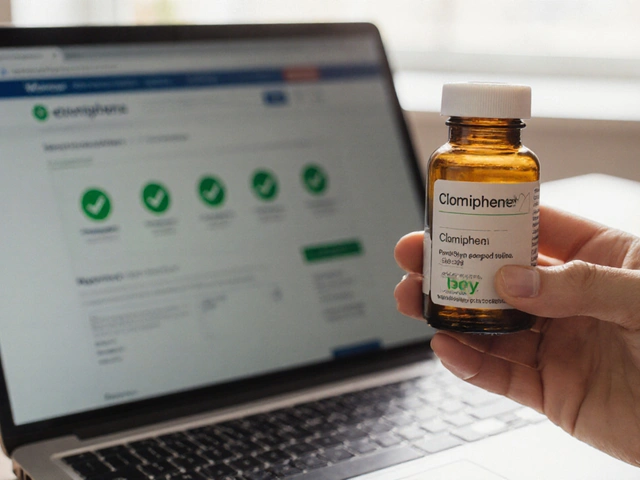Anxiety medication: what works, what to expect, and how to stay safe
Here’s a blunt fact: anxiety meds can help a lot, but they’re not one-size-fits-all. Some work fast for panic, others take weeks and steady doses to lift chronic worry. Knowing the differences — and the risks — helps you get better results with fewer surprises.
Common types and when doctors use them
SSRIs (like sertraline/Zoloft) and SNRIs (venlafaxine) are the usual first choice for long-term anxiety. They lower overall worry but take 4–8 weeks to kick in. Benzodiazepines (alprazolam, lorazepam) calm panic fast but can cause dependence, so doctors often limit them to short-term or as-needed use.
Antihistamines such as hydroxyzine (Vistaril) can reduce anxiety without the addiction risk of benzodiazepines, and some people tolerate them well for situational anxiety. Pregabalin (Lyrica) is sometimes used off-label for generalized anxiety — it helps some people but needs monitoring for side effects and interactions.
Other options include therapy-first approaches, beta-blockers for performance anxiety, and certain sleep or antidepressant meds adjusted for anxiety. Your doctor chooses based on symptoms, history, and other medicines you take.
Side effects, interactions, and safety tips
Watch for common side effects: sleepiness, nausea, sexual changes, and dizziness. Benzodiazepines can cause memory and coordination issues and become harder to stop after long use. If you ever notice worsening mood or suicidal thoughts, contact your prescriber or emergency services right away.
Drug interactions matter. Mixing anxiety meds with alcohol or other sedatives increases drowsiness and breathing risk. Some antidepressants interact with blood thinners or certain migraine drugs. If you’re on multiple medicines, ask your clinician or pharmacist for a quick interaction check.
Buying meds online? Be careful. Only use pharmacies that require a prescription, show a real business address, and have clear contact info. Avoid sites with unbelievable prices or no pharmacist contact. Read our article “Where and How to Buy Vistaril Online Safely and Easily” for practical steps and red flags, and check “Online Pharmacy buy-as.net: Safe Medication Shopping Guide in 2025” for updated tips.
Track how you feel. Keep a simple log of sleep, anxiety levels, side effects, and any triggers. Give new meds the recommended time to work, but don’t wait silently — schedule follow-ups at 2–4 weeks and again at 8–12 weeks. If a drug isn’t helping or causes bad effects, there are alternatives and dose adjustments to try.
If you’re unsure where to start, ask for a short, clear plan: expected benefits, timeline, common side effects, and a safety net (who to call if things get worse). Use therapy alongside medication when possible — they multiply benefits. For more details, check our site articles on specific drugs and safe online buying practices listed under this tag.

Ativan, known by its generic name lorazepam, is a medication often prescribed for anxiety and related conditions. This article breaks down how Ativan works, its potential risks, and safe usage tips in everyday language. You'll also find practical advice for handling side effects and alternatives to consider. Real-life insights and expert opinions help clarify what to expect with this medication. Read on for a clear, honest look at a widely used anxiety drug.






